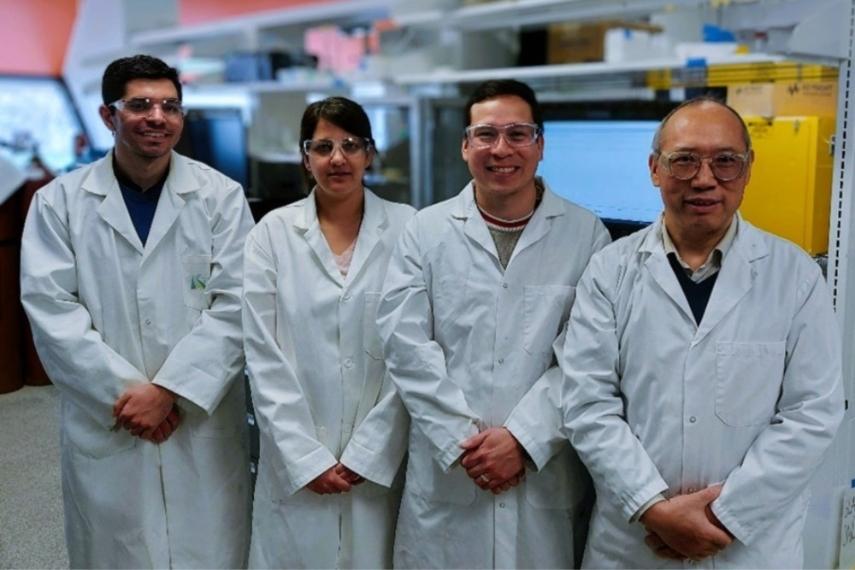Fighting Climate Change: Researchers Develop an Efficient Catalyst for CO2 Reduction

Global climate change is a hot topic in today's world, and it is easy to feel overwhelmed and helpless when we hear about its devastating effects. However, there is hope! Researchers from the University of Guelph, including Dr. Aicheng Chen, from the Chemistry Department, and Dr. Abdallah Elsayed, from the School of Engineering, have developed an innovative solution to reduce carbon dioxide (CO2) levels and combat climate change.
Electrochemical Innovation for a Greener Future
To mitigate climate change and greenhouse effects, the researchers aimed to reduce CO2 levels. Dr. Chen, Dr. Elsayed and their research teams developed a novel nanoporous copper catalyst that can efficiently converts CO2 into useful chemicals such as carbon monoxide and formic acid. Catalysts are used to create a favourable condition for the CO2 reduction reaction to take place, which opens innovative avenues for chemical innovation. This approach may enable new ways of utilizing CO2 gas to produce industrial chemicals. The Chen team has also developed in situ the microscopic and spectroscopic techniques to monitor and optimize the catalyst reaction, and therefore determine the CO2 conversion and reduction.

Department of Chemistry
They used a method called "alloying/dealloying" to create a porous catalyst and then tested different compositions to see which one worked best. Their catalyst performed with over 81 percent efficiency in terms of the electrochemical conversion to carbon monoxide and formate. This research brings us one step closer to finding sustainable solutions for reducing greenhouse gas emissions.
The team faced and overcame several challenges while developing this catalyst, including achieving higher catalyst stability, higher activity, and a lower-cost process. In the terms of their work, stability refers to the ability of the catalyst to continue working over a long period of time; activity refers to the efficiency of the catalyst to convert CO2 into useful products; and a lower cost enables the catalyst to be be more accessible.
With overcoming these challenges the team ensures that the research represents a significant step forward in addressing one of the world's most pressing challenges. This electrochemical innovation is a significant step forward in the fight against climate change, and its impact on the energy and environmental sectors cannot be overstated. The research is particularly relevant to the energy industry and environmental issues. This research offers a potential solution to both reducing greenhouse gas emissions and producing valuable products that can be used in various industries. This could lead to a more sustainable future for our planet and help to mitigate the impacts of climate change.

"We need to work together to find innovative solutions to combat the effects of climate change," said Chen. He believes that their research is a significant step in reducing CO2 levels and offers a beacon of hope for a greener and more sustainable world.
This work was supported by Natural Sciences and Engineering Research Council of Canada (NSERC) and the Canada Foundation of Innovation (CFI) for the Tier 1 Canada Research Chair Award in Electrochemistry and Nanoscience.
A. Salverda, S. Abner, E. Mena-Morcillo, A. Zimmer, A. Elsayed, and A. Chen, Electrochemical, Scanning Electrochemical Microscopic, and In Situ Electrochemical Fourier Transform Infrared Studies of CO 2 Reduction at Porous Copper Surfaces. J. Phys. Chem. C, April 2023, doi: 10.1021/acs.jpcc.3c00181.